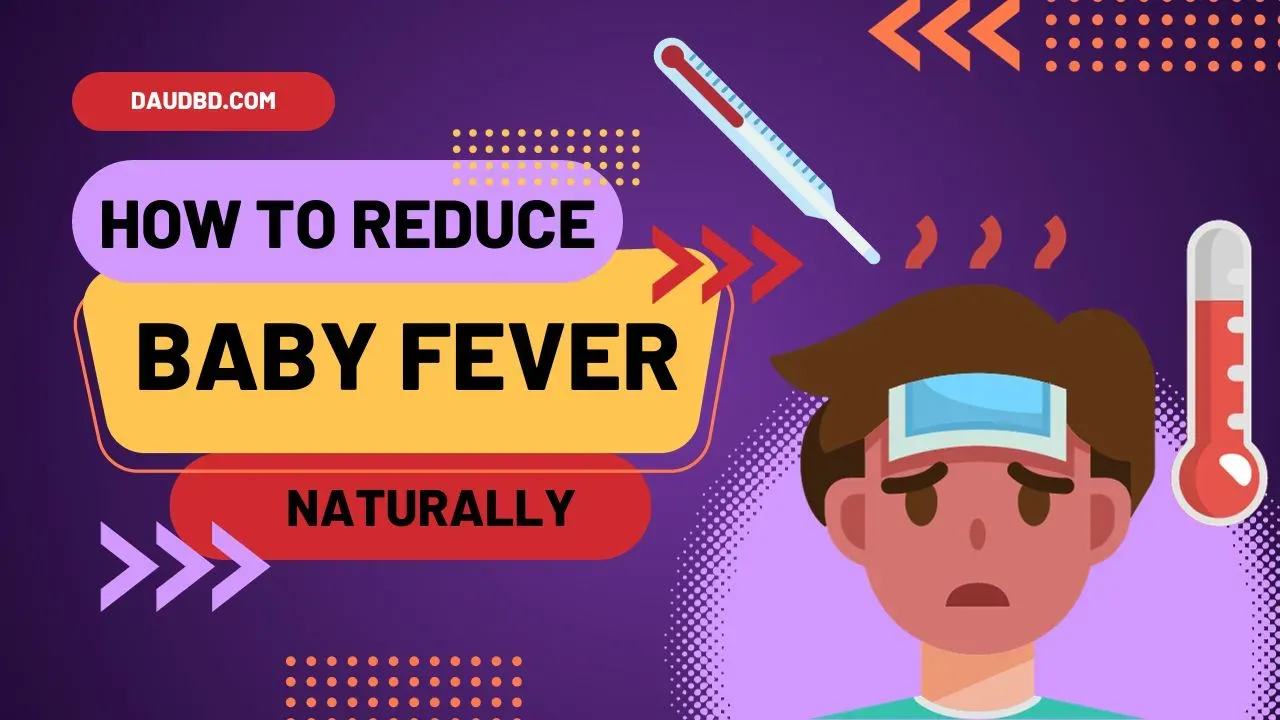
|
| How to Reduce Fever in a Baby Naturally |
Introduction
When your baby has a fever, it can be a worrisome and challenging experience. As a parent, your instinct is to provide the best care possible. While medical intervention may be necessary in certain situations, there are also natural and gentle ways to help reduce your baby's fever. In this article, we will explore some safe and effective methods to alleviate your baby's discomfort and promote a speedy recovery.
What is Baby Fever ?
Baby fever" is a colloquial term used to describe a strong desire or longing to have a baby. It is not a medical condition or a physical symptom but rather an emotional or psychological state. People experiencing baby fever may feel a strong, often overwhelming urge to become a parent and have a child of their own. This desire is typically driven by various factors, including societal influences, personal life goals, or a natural instinct to nurture and care for a child.
Baby fever can be experienced by individuals of all genders and can manifest at various stages of life. It's important to note that while many people experience baby fever and have a strong desire to become parents, the decision to have children should be carefully considered, as it involves significant responsibilities and life-changing commitments. It's essential for individuals and couples to assess their readiness for parenthood, both emotionally and practically, before making this significant life decision.
Keep Your Baby Hydrated
Ensuring your baby remains well-hydrated is crucial during a fever. A fever can cause increased fluid loss, so it's essential to offer plenty of fluids. Breast milk or formula is the best choice for infants, as they provide the necessary nutrients and hydration. You can also offer clear liquids, such as water or an oral rehydration solution (ORS), for older babies who have started solids.
Lukewarm Baths
A lukewarm bath can be a soothing and effective way to reduce your baby's fever. Avoid using cold water, as it can cause shivering and discomfort. Instead, fill the tub with lukewarm water and let your baby soak for 10-15 minutes. This can help cool their body temperature and provide relief.
Dress Lightly
Dress your baby in lightweight, breathable clothing to help regulate their body temperature. Avoid bundling them up in heavy layers or blankets, as this can trap heat and make the fever worse. Opt for loose-fitting clothes that allow for natural cooling.
Room Temperature
Maintain a comfortable room temperature for your baby. A slightly cooler room, around 70-72°F (21-22°C), is generally ideal. Avoid overdressing your baby or overusing heating devices, as they can make your baby feel more uncomfortable during a fever.
Use a Fan
A gentle fan or a ceiling fan can help with air circulation and cooling. Make sure the fan is not directly blowing on your baby, and use it at a low setting to create a comfortable environment.
Herbal Teas
For babies older than six months, certain herbal teas may help reduce fever. Chamomile and elderflower teas, when cooled to room temperature, can be offered in small quantities. These teas have natural soothing properties and may encourage sweating, which can help regulate body temperature.
Breastfeeding
If your baby is breastfeeding, continue to nurse as often as they want. Breast milk provides essential nutrients and antibodies that can help support their immune system during an illness. It's also a source of hydration, keeping them well-nourished.
Monitor Fever with a Thermometer
Keep a close eye on your baby's temperature with a reliable thermometer. A rectal thermometer is often recommended for infants for accurate readings. If your baby's temperature remains high or rises significantly, consult a healthcare professional for guidance.
Consult a Pediatrician
If your baby's fever persists for more than a couple of days, is accompanied by other severe symptoms, or is causing you significant concern, do not hesitate to seek professional medical advice. A pediatrician can provide guidance on when it's necessary to consider over-the-counter medications or other treatments.
Conclusion
Reducing a fever in a baby naturally involves creating a comfortable and nurturing environment, offering proper hydration, and monitoring their temperature. While these natural remedies can provide relief, it's essential to consult with a healthcare professional if you have concerns about your baby's fever, as it may be an indicator of an underlying condition that requires medical attention. Your baby's health and well-being are of paramount importance, and with the right care, they will be on their way to a swift recovery.

